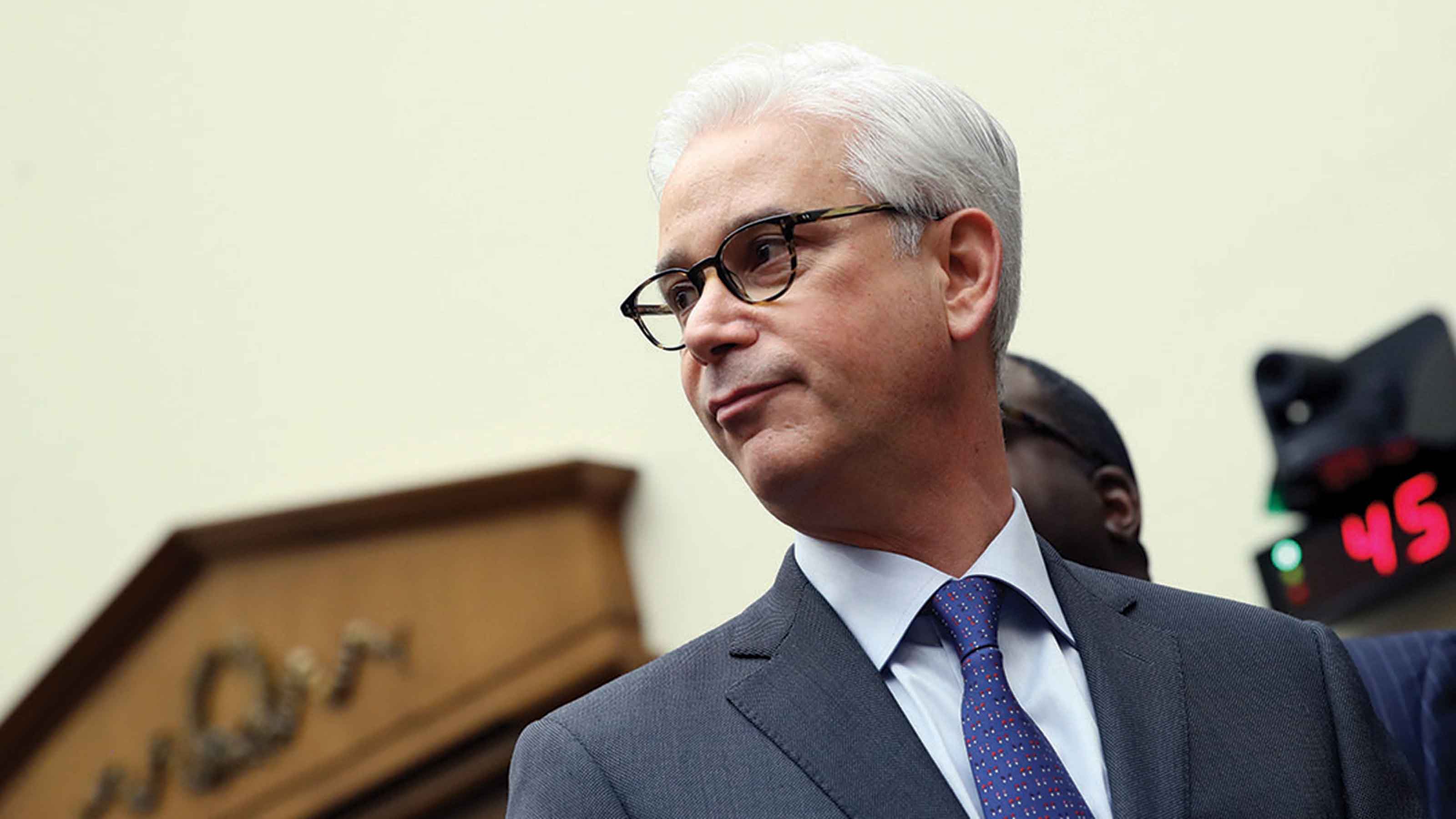Should Creative Property Be Free Online?
Creative people should get paid for their talent in a variety of ways, especially by consumers of their work.

Profit and prosper with the best of Kiplinger's advice on investing, taxes, retirement, personal finance and much more. Delivered daily. Enter your email in the box and click Sign Me Up.
You are now subscribed
Your newsletter sign-up was successful
Want to add more newsletters?

Delivered daily
Kiplinger Today
Profit and prosper with the best of Kiplinger's advice on investing, taxes, retirement, personal finance and much more delivered daily. Smart money moves start here.

Sent five days a week
Kiplinger A Step Ahead
Get practical help to make better financial decisions in your everyday life, from spending to savings on top deals.

Delivered daily
Kiplinger Closing Bell
Get today's biggest financial and investing headlines delivered to your inbox every day the U.S. stock market is open.

Sent twice a week
Kiplinger Adviser Intel
Financial pros across the country share best practices and fresh tactics to preserve and grow your wealth.

Delivered weekly
Kiplinger Tax Tips
Trim your federal and state tax bills with practical tax-planning and tax-cutting strategies.

Sent twice a week
Kiplinger Retirement Tips
Your twice-a-week guide to planning and enjoying a financially secure and richly rewarding retirement

Sent bimonthly.
Kiplinger Adviser Angle
Insights for advisers, wealth managers and other financial professionals.

Sent twice a week
Kiplinger Investing Weekly
Your twice-a-week roundup of promising stocks, funds, companies and industries you should consider, ones you should avoid, and why.

Sent weekly for six weeks
Kiplinger Invest for Retirement
Your step-by-step six-part series on how to invest for retirement, from devising a successful strategy to exactly which investments to choose.
Q: My twentysomething son admires the “hack-tivist” computer geeks who break into proprietary databases, "liberate" copyrighted content (scholarly articles, music, videos and the like, which the databases sell for small fees), and send it out to the world for free. He seems to think that all intellectual property should be free, and copyrights and patents stifle creativity. What do you think?
As you might imagine, I think these hackers, idealistic though they sometimes sound, are misguided lawbreakers. I'm a journalist, and I believe that my fellow writers and other creative people, such as composers, scholars, artists, inventors and performers, should get paid for their talent in a variety of ways, especially by the consumers of their work.
To me, copyrights and royalties don't stifle artistic creativity, but stimulate and reward it. There is a valid debate, however, over whether in the high-tech world, too many overly broad patents are being granted today, stunting innovation and exacerbating litigation; I’ll save that dilemma for another column.
From just $107.88 $24.99 for Kiplinger Personal Finance
Become a smarter, better informed investor. Subscribe from just $107.88 $24.99, plus get up to 4 Special Issues

Sign up for Kiplinger’s Free Newsletters
Profit and prosper with the best of expert advice on investing, taxes, retirement, personal finance and more - straight to your e-mail.
Profit and prosper with the best of expert advice - straight to your e-mail.
I'm a publisher as well as a journalist, so I believe that selling content to users for a fee is both an owner's right and a good way for society to lessen the risk of advertiser influence on content. I favor user charges (in varying, modest amounts) for all content delivered online, whether in the form of subscriptions, books on Kindles and Nooks, iTunes for $1, photographs, or single newspaper or magazine articles.
The everything-free advocates think that user fees, besides being antidemocratic, are unnecessary because Web sites can generate enough revenue from advertising—selling access to visitors’ eyeballs—to support the site and pay some kind of royalty to originators of the content. That might be the case on some high-traffic sites, but most Web sites aren't earning enough advertising revenue to pay writers what they used to earn in the pre-Internet days. And many other creative workers are suffering from massive revenue losses from pirated movies and music. It's both an ethical and financial issue.
Have a money-and-ethics question you’d like answered in this column? Write to editor in chief Knight Kiplinger at ethics@kiplinger.com.
Profit and prosper with the best of Kiplinger's advice on investing, taxes, retirement, personal finance and much more. Delivered daily. Enter your email in the box and click Sign Me Up.

Knight came to Kiplinger in 1983, after 13 years in daily newspaper journalism, the last six as Washington bureau chief of the Ottaway Newspapers division of Dow Jones. A frequent speaker before business audiences, he has appeared on NPR, CNN, Fox and CNBC, among other networks. Knight contributes to the weekly Kiplinger Letter.
-
 Over 65? Here's What the New $6K 'Senior Deduction' Means for Medicare IRMAA Costs
Over 65? Here's What the New $6K 'Senior Deduction' Means for Medicare IRMAA CostsTax Breaks A new deduction for people over age 65 has some thinking about Medicare premiums and MAGI strategy.
-
 U.S. Congress to End Emergency Tax Bill Over $6,000 Senior Deduction and Tip, Overtime Tax Breaks in D.C.
U.S. Congress to End Emergency Tax Bill Over $6,000 Senior Deduction and Tip, Overtime Tax Breaks in D.C.Tax Law Here's how taxpayers can amend their already-filed income tax returns amid a potentially looming legal battle on Capitol Hill.
-
 5 Investing Rules You Can Steal From Millennials
5 Investing Rules You Can Steal From MillennialsMillennials are reshaping the investing landscape. See how the tech-savvy generation is approaching capital markets – and the strategies you can take from them.
-
 Airbnb Host Tells What It's Like
Airbnb Host Tells What It's LikeBusiness Costs & Regulation This Denver pharmacist began booking her ski condo a few months after the pandemic hit.
-
 Tough Times for a Family Business
Tough Times for a Family BusinessBusiness Costs & Regulation His dry-cleaning operation was rocked by the pandemic, but he is staying optimistic.
-
 IRS Gives Truckers a Tax Break in Response to the Colonial Pipeline Shutdown
IRS Gives Truckers a Tax Break in Response to the Colonial Pipeline ShutdownTax Breaks The tax penalty for using dyed diesel fuel for highway use is temporarily suspended.
-
 Reliving a Harlem Renaissance
Reliving a Harlem RenaissanceBusiness Costs & Regulation After a tough winter, two sisters look forward to reviving their restaurant’s business.
-
 Add a VPN to Surf the Internet Safely
Add a VPN to Surf the Internet SafelyTechnology To help you fight identity theft, consider adding a VPN.
-
 Stephanie Creary: Making the Case for Diversity on Corporate Boards
Stephanie Creary: Making the Case for Diversity on Corporate BoardsBusiness Costs & Regulation Adding underrepresented voices can improve a company’s bottom line.
-
 How We Lose When We Overlook Black Talent
How We Lose When We Overlook Black TalentBusiness Executives Comments from Wells Fargo CEO Charles Scharf (pictured) reflect a culture that tramples on clients’ trust and limits opportunities for people of color.
-
 Retirees, Create An Emergency Fund for Rental Property
Retirees, Create An Emergency Fund for Rental PropertyBusiness Costs & Regulation Build a cushion to protect your income from an unforeseen crisis.